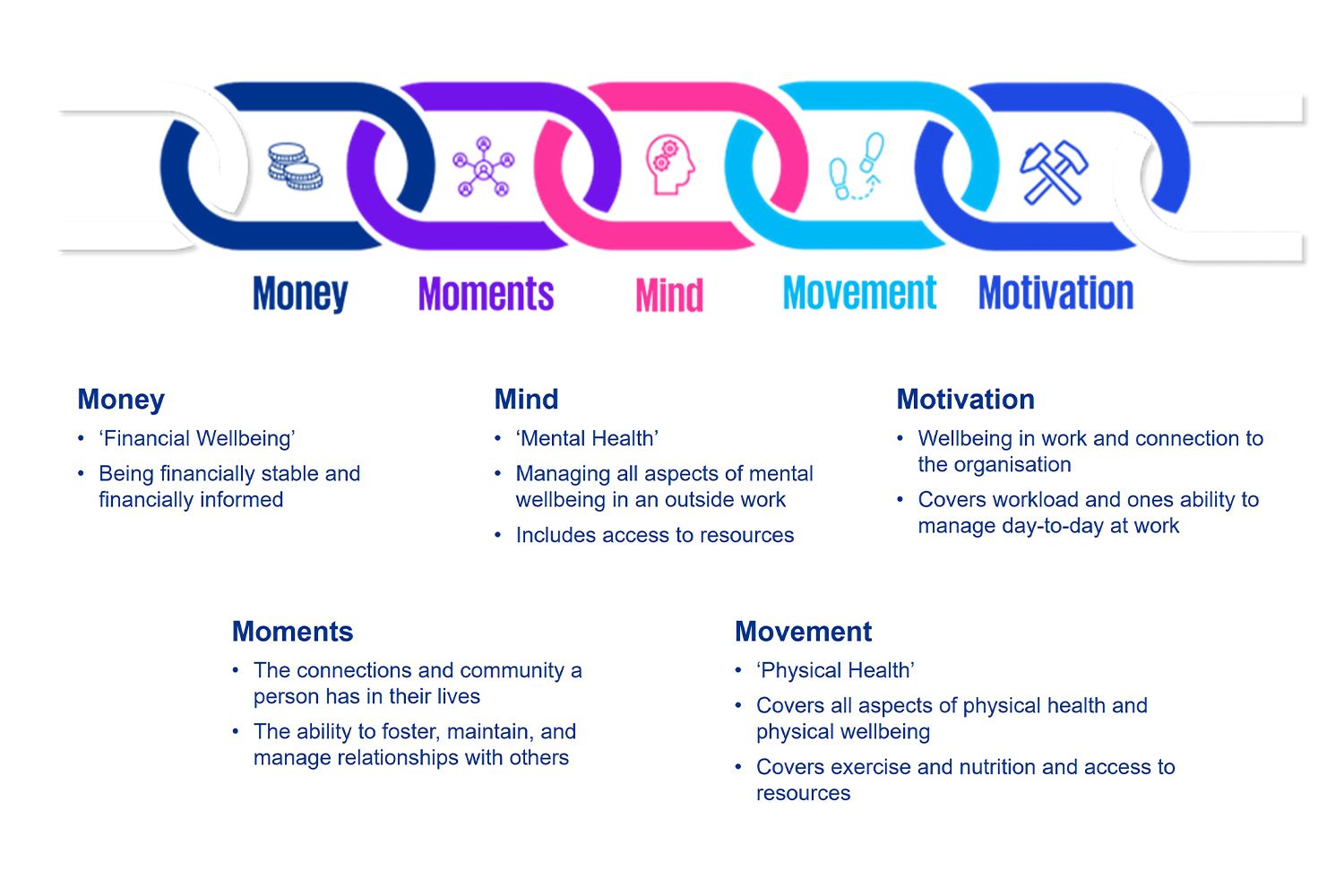It has long been recognised that positive wellbeing data contributes to stronger employee value propositions and higher levels of productivity. Organisations that are using wellbeing data to develop and deliver wellbeing strategies unique to their workforce and its’ challenges stand better chances of attracting & more importantly, retaining talent.
Despite the benefits of using wellbeing data as part of wider people strategies, we are only seeing a handful of organisations harness the power of wellbeing data to provide proactive and personalised wellbeing resources to their people.
How forward-looking HR leaders set themselves apart with data
Existing research indicates that the areas that employees and employers think will have the most influence on employee wellbeing aren’t actually the areas that have the biggest impact on culture (Indeed Work Happiness Report, 2022).
KPMG recently surveyed 300 HR leaders and identified 12 organisations whose future-focused approach to HR has earned them recognition as pathfinders. What do these organisations all have in common? They defined Wellbeing as a strategic priority over the next three years.
We believe that, while each HR function needs to find its own way, there are three considerations organisations should keep front of mind when thinking about wellbeing.
1. Proactive not reactive
We often see companies onboarding third-party providers to deliver EAPs without understanding the benefits or return on investment. What is the point in investing in services which just sit idle?
In contrast, our pathfinders are leading the way in wellbeing, with 75% already utilising employee experience and engagement data to make robust recommendations based on real-time insight & improve wellbeing services year-on-year.
Our pathfinders understand the justified need to move beyond implementing ‘reactive’ wellbeing provisions in response to distress or cultural problems towards a proactive suite of wellbeing services before employees may necessarily need them.
One pathfinder, Starbucks, updated their mental health assistance program in response to feedback indicating that existing resources don’t always provide the right care in employee’s time of need. By continuously gathering data on whether staff are accessing treatment, how quickly and what it costs, Starbucks have conclusively determined that investing in wellbeing drives a return in productivity, engagement, and customer experience.
2. Persona-based / Personalised services
Large organisations today face the challenge of accommodating wellbeing services to a range of demographics due to differences in things like age, financial status, identity factors, geographic location, and role type.
For wellbeing services to land with employees, it is essential that organisations have thought about how these resources will resonate with the individual in their times of need and have planned this into their support packages and communication strategies.
KPMG found that pathfinders, such as, AIB understand the importance of providing personalised wellbeing support through investment in internal wellbeing champions that promote wellbeing resources and provide personalised and targeted support to groups across the business.
3. Wellbeing is greater than mental health
Mental health continues to be an important aspect of wellbeing, but it is important that organisations recognise the breadth of wellbeing services that should be provided to meet the needs of their people.
In the context of a continued cost of living crisis, long-term shifts to perceptions of movement and health, and continuing debates around hybrid ways of working, understanding the full scale of wellbeing requirements has never been more important.
KPMG uses the 5Ms to define holistic wellbeing:







